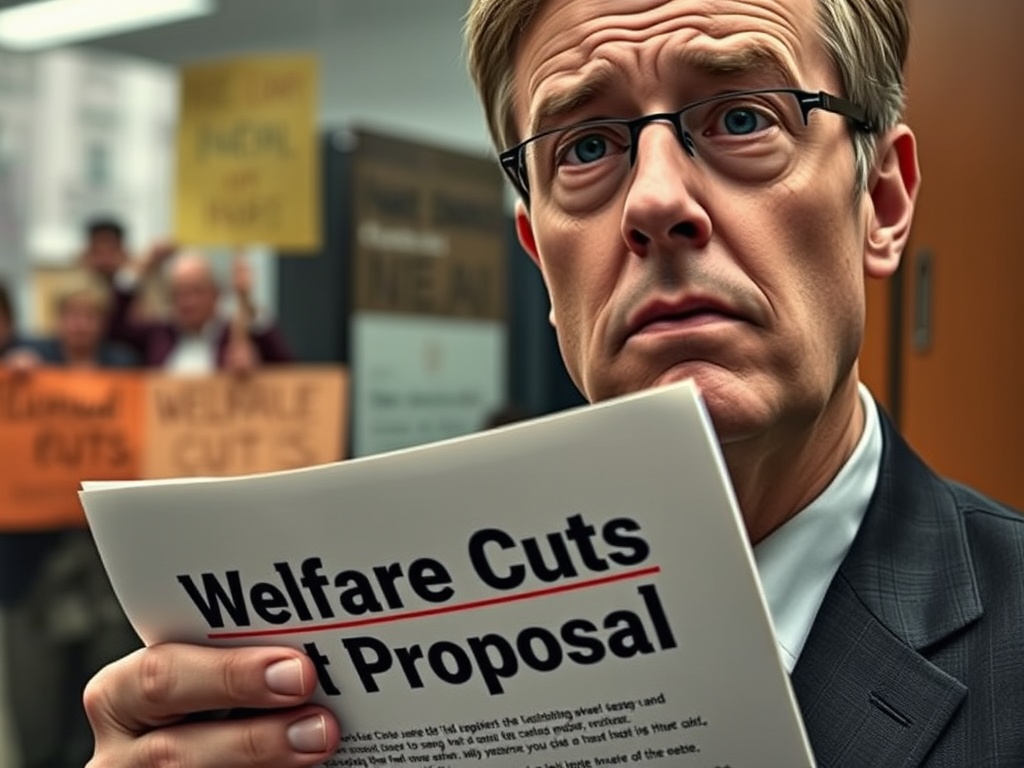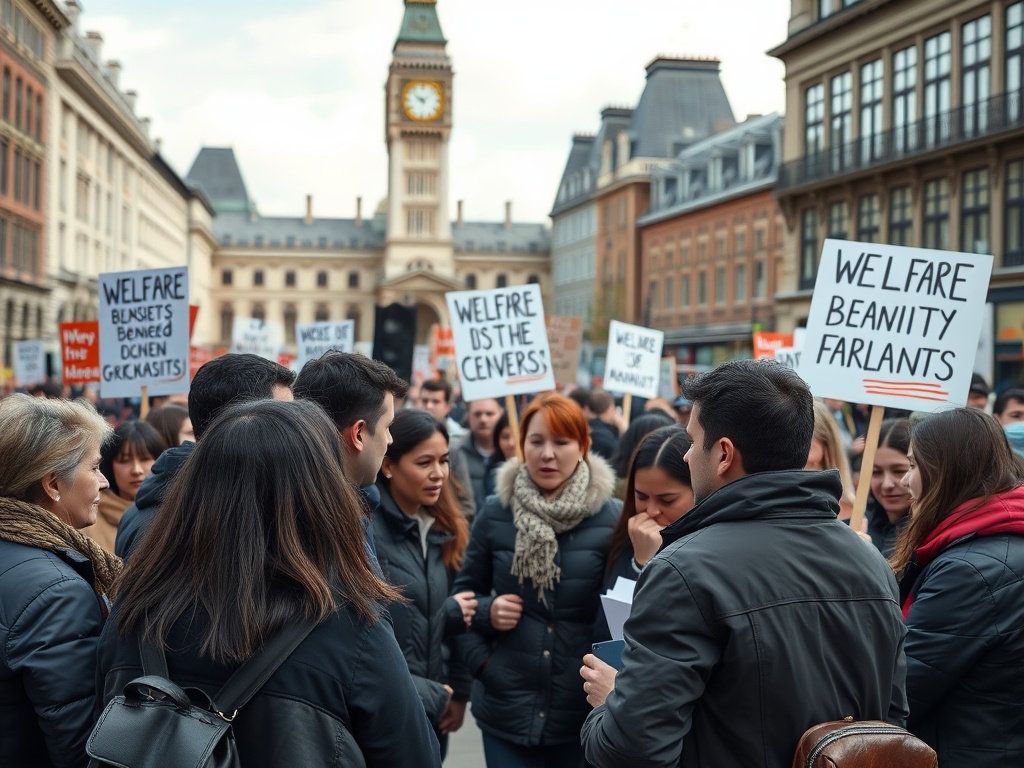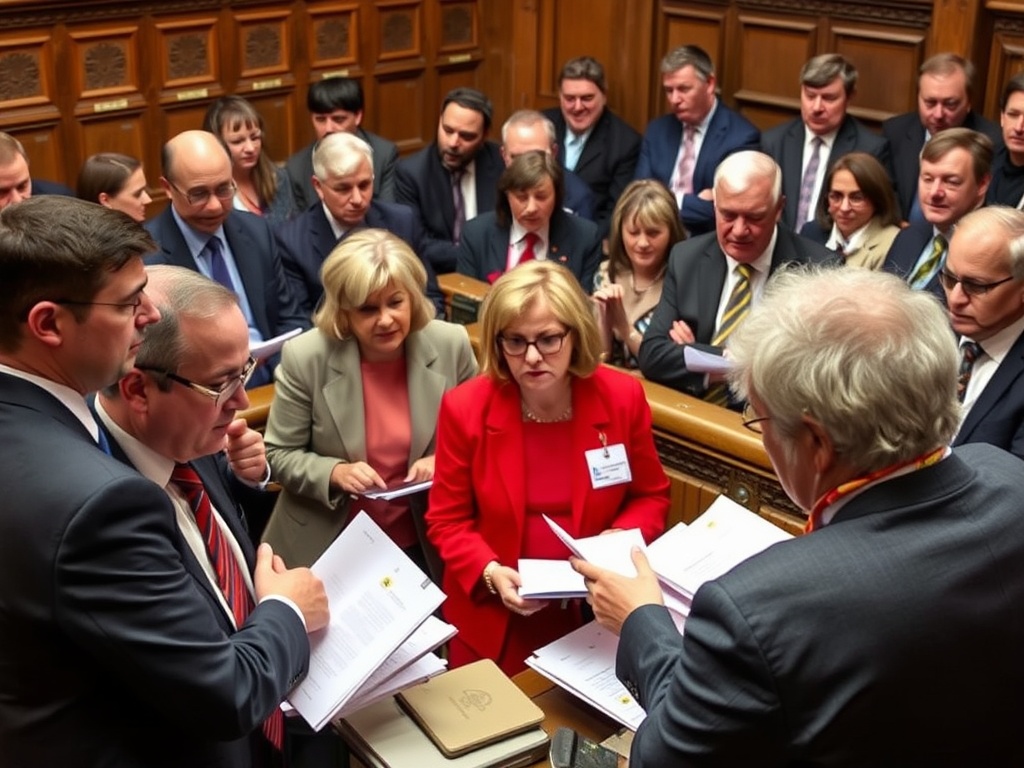Labour party tensions over proposed welfare cuts intensified on Thursday, as government insiders criticized concerned MPs for what they termed “pearl clutching.” Meanwhile, rebellious factions within the party are advocating for a reversal of plans to freeze Personal Independence Payments (PIP). No 10 Downing Street is attempting to reassure MPs anxious about the £6 billion cuts to the welfare budget through various briefings, but several attendees described these sessions as mere “tick-box exercises” lacking substantive details.
Within the government, there are signs of stress as they face backlash from different factions of the party who are united in opposing the proposed freeze on the annual increase of PIP. The reform plans are set to be unveiled in a Green Paper scheduled for release on Tuesday. A government source stated, “We have been quite transparent for months—anyone paying attention would realize our focus is on helping disabled individuals enter the workforce, which involves making tough choices.” They added, “It seems odd that there is this sudden outcry when our priorities have been clear all along.”
While many MPs are advocating for PIP to be adjusted in line with inflation, rather than being frozen as a cost-saving measure, the government is reportedly considering adjustments and concessions aimed at safeguarding the most disabled and vulnerable individuals from benefit cuts. These proposed reductions are part of Chancellor Rachel Reeves’s efforts to address an estimated £11.5 billion shortfall in her financial strategy, which is essential for adhering to her fiscal commitments outlined in the Spring Statement on March 26. These rules stipulate that daily spending must be funded through taxation rather than borrowing.
‘Millions getting no help to go back to work,’ Kendall claims

The proposed changes may include reducing sickness and disability benefits to encourage individuals to return to work, with benefits increasing for those deemed fit for employment and decreasing for those considered unfit. On Thursday, Work and Pensions Secretary Liz Kendall MP emphasized new statistics revealing that 1.8 million individuals in the universal credit category are receiving no assistance in finding employment—a figure that has nearly quadrupled since the pandemic began. She remarked, “Millions are being shut out of the workforce due to a failing welfare system that neglects those in need. We know there are at least 200,000 individuals eager to work, and they deserve the right support and a fair opportunity.”
Kendall further asserted, “This government is committed to reforming the broken benefits system we inherited so it genuinely aids people, facilitates their entry into the workforce, and enhances living standards, all while placing the welfare budget on a more sustainable path.” The Office for Budget Responsibility projected that spending on health and disability benefits would rise from £64.7 billion in 2023-24 to an estimated £100.7 billion by 2030. Additionally, eligibility criteria for PIP—which supports individuals regardless of their employment status to manage disabilities—are expected to be tightened, with annual increases potentially frozen for a year.
However, dissenting MPs have cautioned that targeting PIP is a move that could be “too far,” rallying around the campaign to halt the freeze. Concerns have been voiced that the planned cuts might adversely affect the wrong demographic. One MP remarked, “I don’t want to see any of my constituents who are chronically ill or disabled facing financial hardships. Their challenges are already significant. We need assurances that we will support those unable to return to work; they are not in this position due to poor choices, but rather unfortunate circumstances.”
Another MP added, “I cannot support cutting PIP. This is where I draw the line. We should not reduce benefits for anyone who is disabled and receiving them, as it would push these individuals further into poverty. It is not acceptable to categorize disabled individuals as ‘deserving’ or ‘undeserving’ based on severity. No one should be discussing it in such terms.” Concerns were also raised by a third MP, who suggested that the freeze might extend beyond one year, stating, “A one-year real-term cut is horrifying; anything longer would be catastrophic for those affected.”
As the discourse continues, left-wing campaign organization Momentum has initiated an online lobbying effort to encourage citizens to contact their MPs in opposition to welfare cuts. In a related development, Sir Keir Starmer defended the government’s strategies during a visit to Hull on Thursday, asserting, “The welfare system as it currently stands cannot be justified, either economically or morally. The costs are escalating rapidly. If we remain inactive, welfare expenditure could soar to £70 billion annually, which represents a third of NHS funding. This amount exceeds the combined budgets of the Home Office and our prison systems. Therefore, we are compelled to make difficult choices.”




